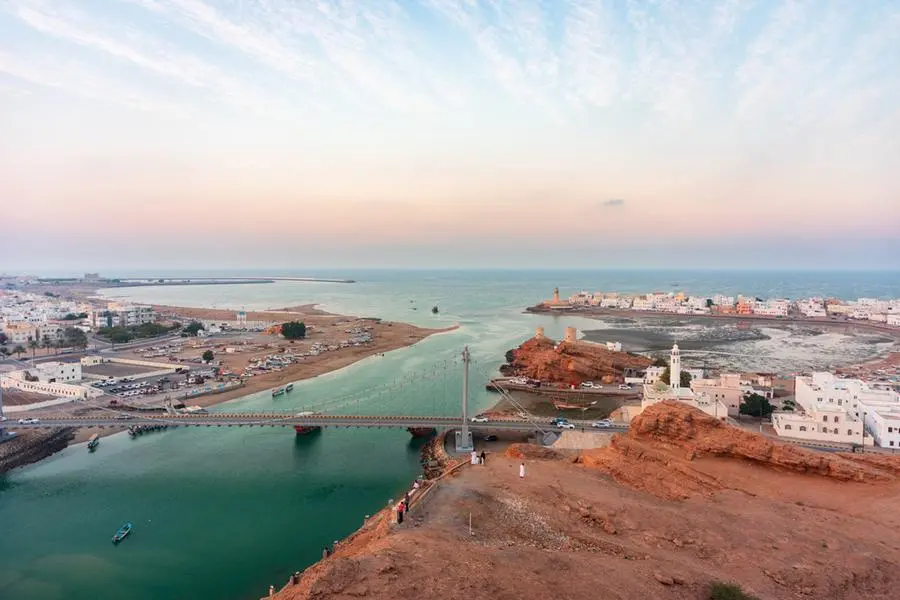PHOTO
A new study published by Oman’s Environment Authority (EA) in the prestigious Pollution Study Journal has raised concerns over small-scale marine oil spills of unknown origin, warning that these spills pose a growing threat to Oman’s coastal ecosystems, fisheries and economy.
Unlike major oil spills that trigger international responses and compensation mechanisms, these smaller, often deliberate discharges occur undetected, leaving affected communities to deal with the environmental and economic fallout. The study, led by Amran al Kamzari, a senior environmental researcher at the Environment Authority and Newcastle University, emphasises the need for improved monitoring, enforcement, and international cooperation to address this pressing issue.
Oil pollution remains a persistent environmental challenge, particularly for nations with extensive coastlines such as Oman. The study highlights that while large-scale oil spills have decreased globally due to improved regulations, small-scale spills remain frequent and largely unaddressed.
Most of these spills are caused by illegal discharges from vessels that dispose of bilge water, sludge, and oily waste directly into the sea to avoid the costs of legal disposal at ports. These discharges often occur in international waters or along busy shipping lanes, making them difficult to detect and trace.
The study cites global data indicating that thousands of small-scale spills occur annually, contributing to 37 per cent of total oil discharges from maritime activities. With Oman’s strategic location along major international shipping routes, the country is particularly vulnerable to such pollution.
“Many assume that because large oil spills have decreased, marine pollution is under control. However, small-scale spills have not decreased, and their impact is often overlooked,” the report states.
Local impacts Oman’s coastal ecosystem, home to some of the most diverse marine species in the region, is highly sensitive to oil pollution. According to the study, small-scale spills contaminate coral reefs, mangroves, and fisheries, leading to long-term ecological damage. Oil coats marine organisms, disrupts food chains, and reduces water quality, making it harder for marine life to recover.
The economic consequences are equally concerning. The fishing industry—one of Oman’s key economic sectors—faces declining fish stocks and potential contamination risks due to oil spills. Tourism, particularly eco-tourism and diving industries, could also suffer if coastal waters become polluted.
Furthermore, desalination plants, which supply the majority of Oman’s drinking water, are at risk if oil spills contaminate water sources. The increased cost of treating oil-contaminated seawater could put additional pressure on Oman’s infrastructure.
“The economic cost of small-scale spills is often borne by local communities, as polluters rarely face consequences,” the report warns.
Identifying Polluters
One of the key difficulties in addressing small-scale oil spills is their untraceable nature. Unlike large spills from tanker accidents, which are well-documented and subject to liability claims, small-scale discharges go undetected or unreported.
The study explains that some vessels deliberately bypass oil filtration systems and illegally discharge waste into the sea. By the time oil from these spills reaches coastal areas, it has broken down or dispersed, making source identification extremely difficult.
While technologies like satellite monitoring and forensic oil analysis exist, enforcement is challenging due to the covert nature of small-scale spills and limited monitoring capacity in many regions. “Oman must strengthen its monitoring capabilities through real-time detection systems and increased maritime inspections,” the study suggests.
One of the study’s major findings is that global compensation mechanisms do not cover unattributable spills, leaving affected communities without financial support for cleanup efforts.
Policy Recommendations
• Enhanced Monitoring and Detection: Investing in satellite tracking and AI-powered spill detection to identify and trace illegal discharges; Conducting more frequent maritime inspections at Omani ports to detect violations.
• Strengthening Enforcement Mechanisms: Increasing fines and penalties for illegal oil discharges by ships operating in Omani waters; Enhancing cooperation with regional and international organisations to track polluting vessels.
• National Compensation Fund: Establishing a national fund financed by levies on shipping companies and oil industry stakeholders to cover cleanup costs for unattributable spills. Providing financial assistance to affected fisheries and tourism operators.
• Public Awareness: Encouraging local communities and fishermen to report suspected spills; Conducting public awareness campaigns on the environmental and economic risks of oil pollution.
“The issue of small-scale oil spills is neither trivial nor diminishing,” the report concludes. “Oman’s long-term environmental sustainability depends on its ability to confront and mitigate the challenges posed by unattributable oil pollution.”
2022 © All right reserved for Oman Establishment for Press, Publication and Advertising (OEPPA) Provided by SyndiGate Media Inc. (Syndigate.info).





















